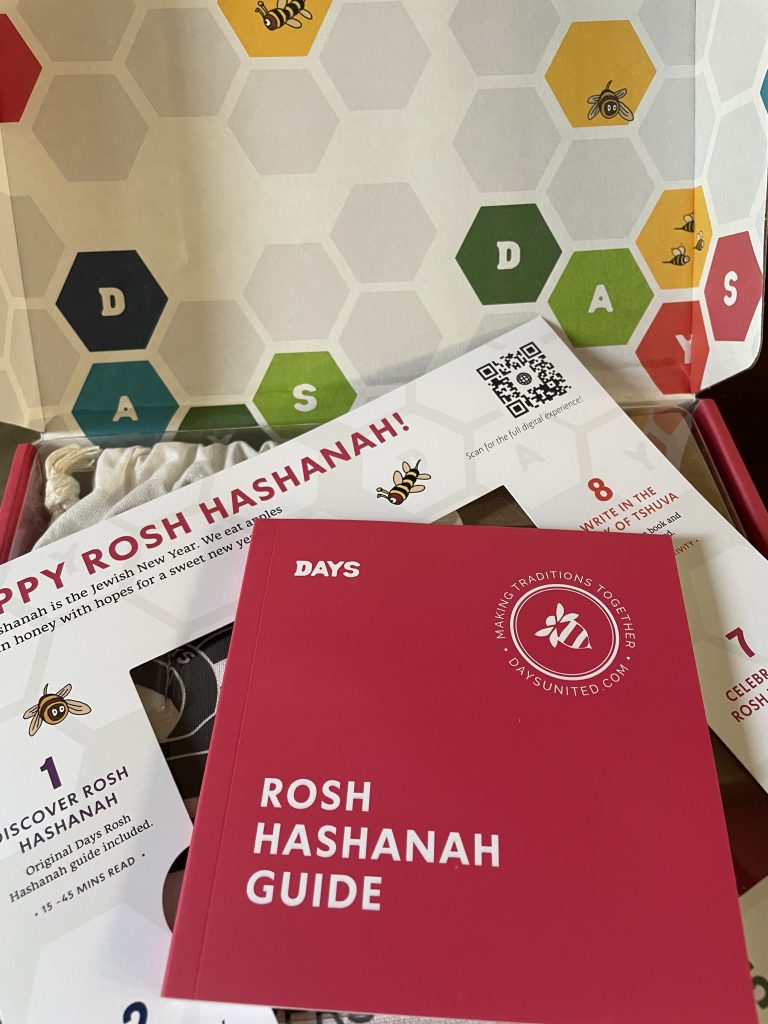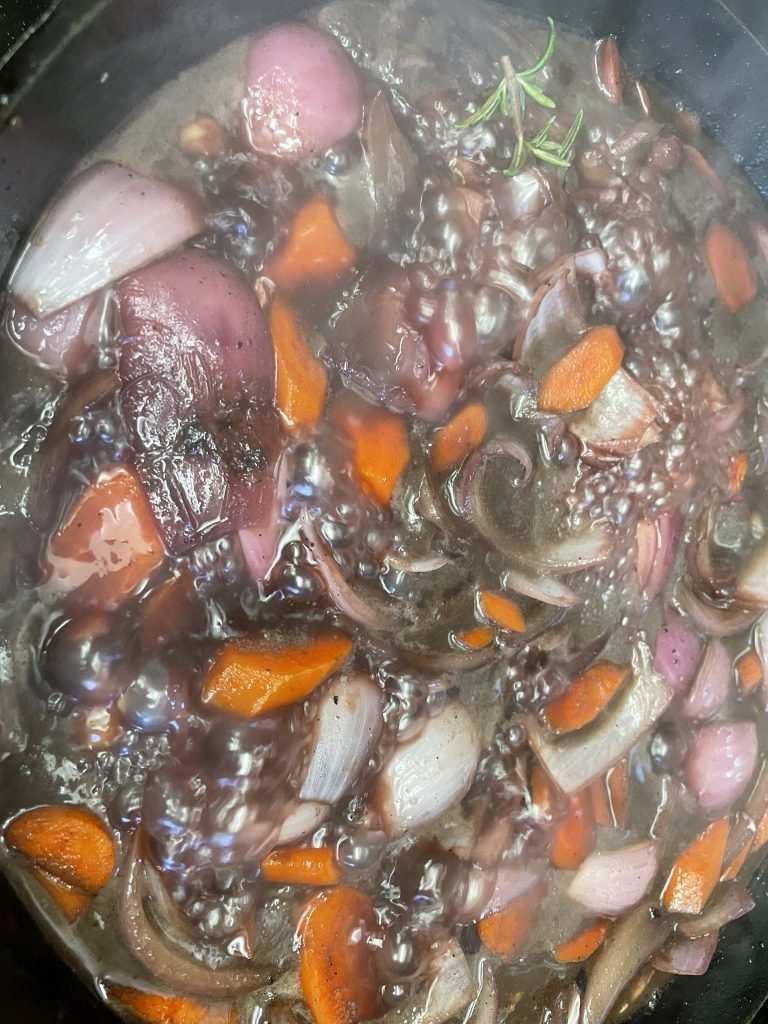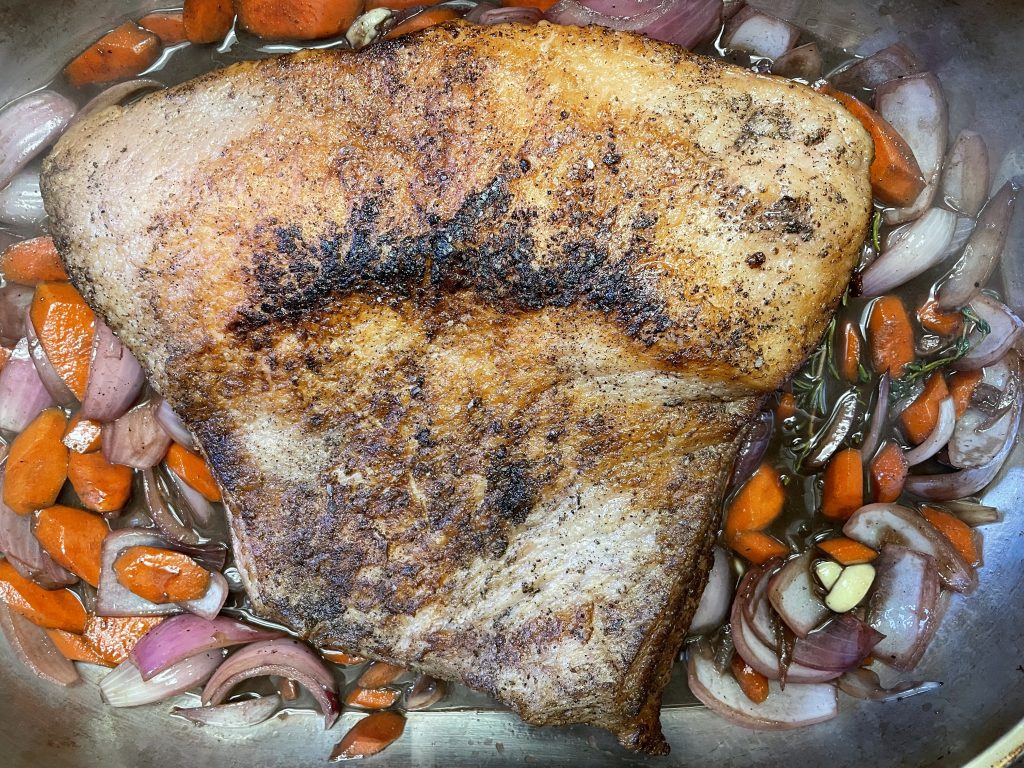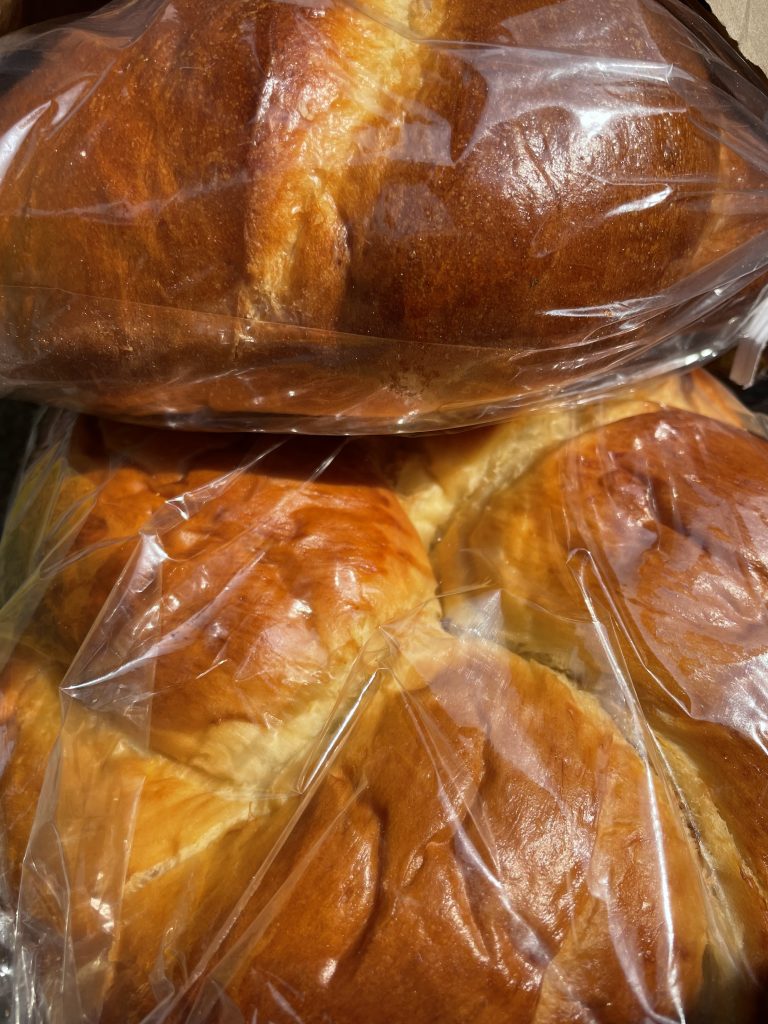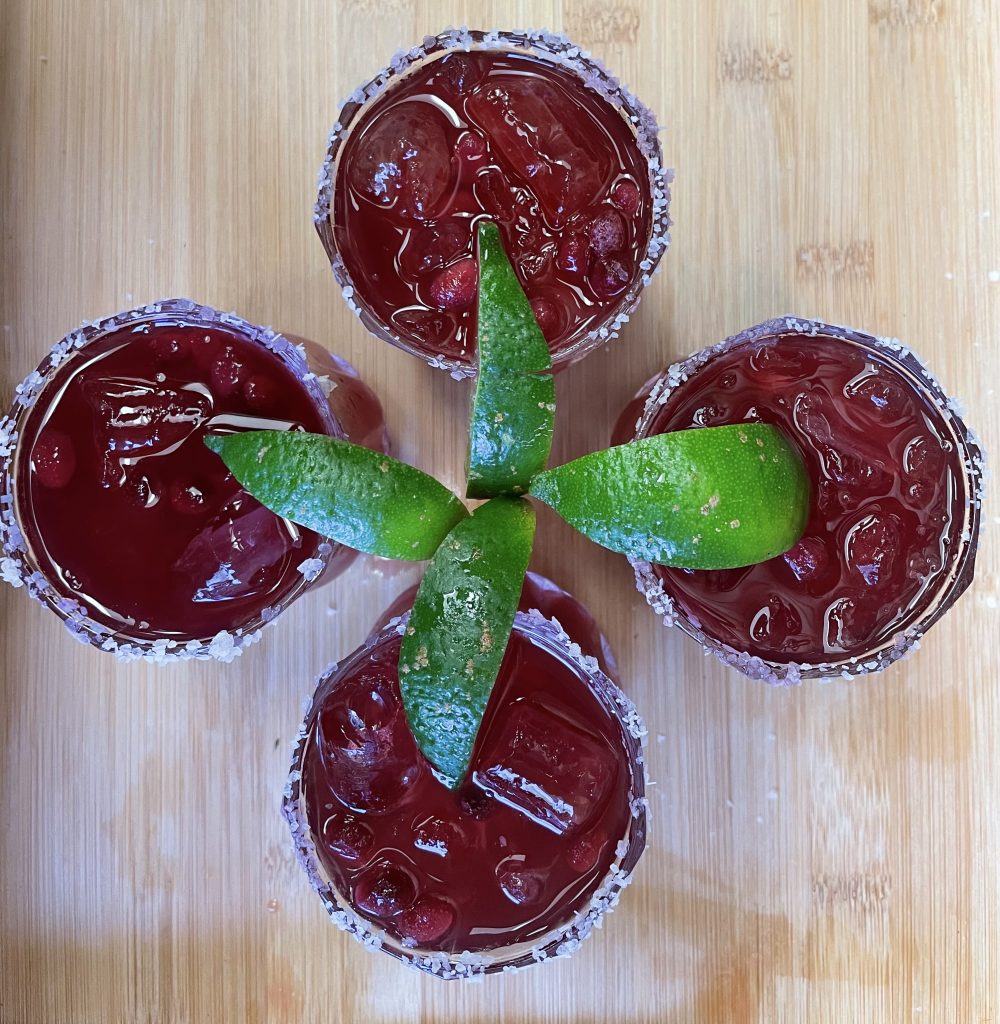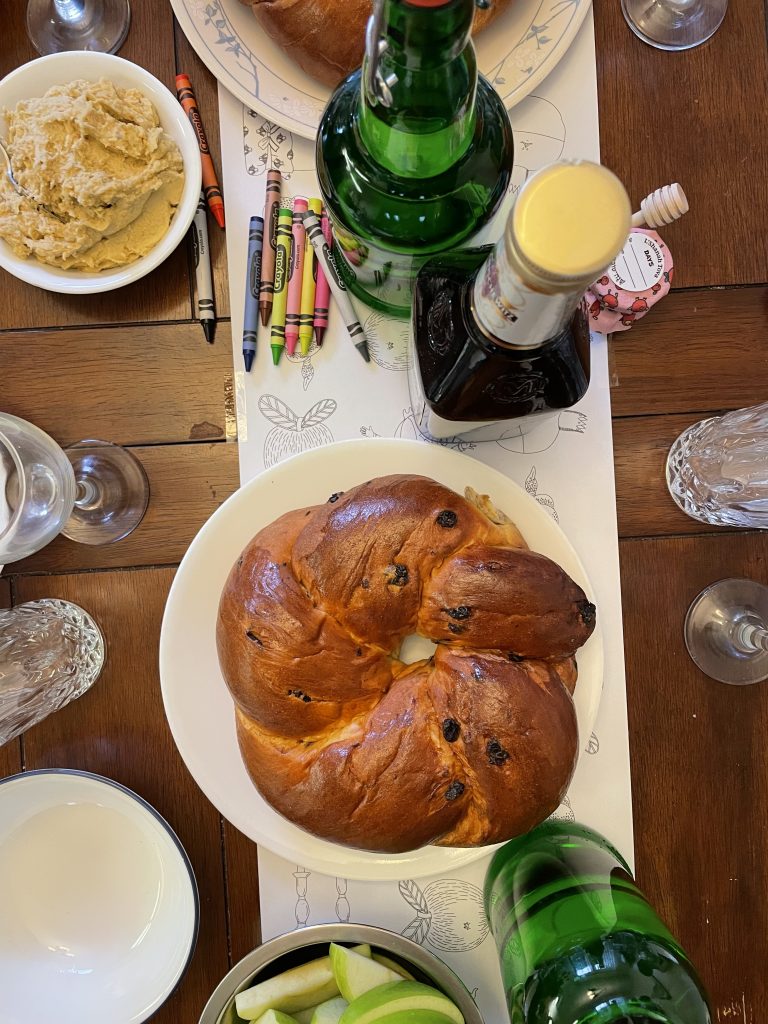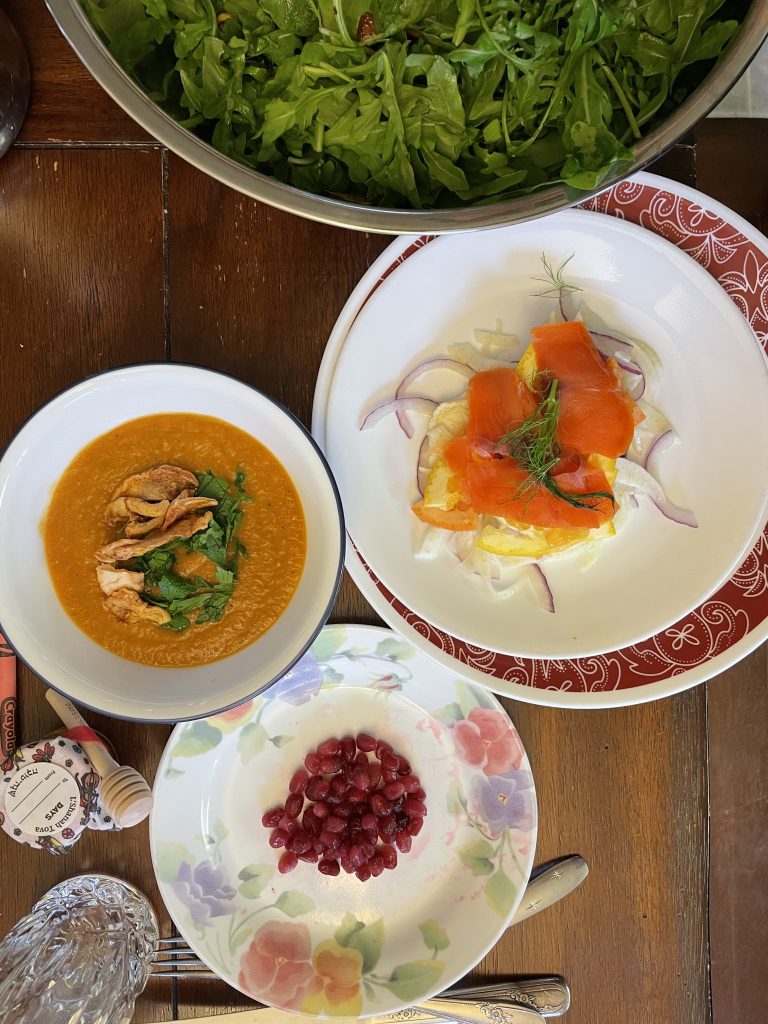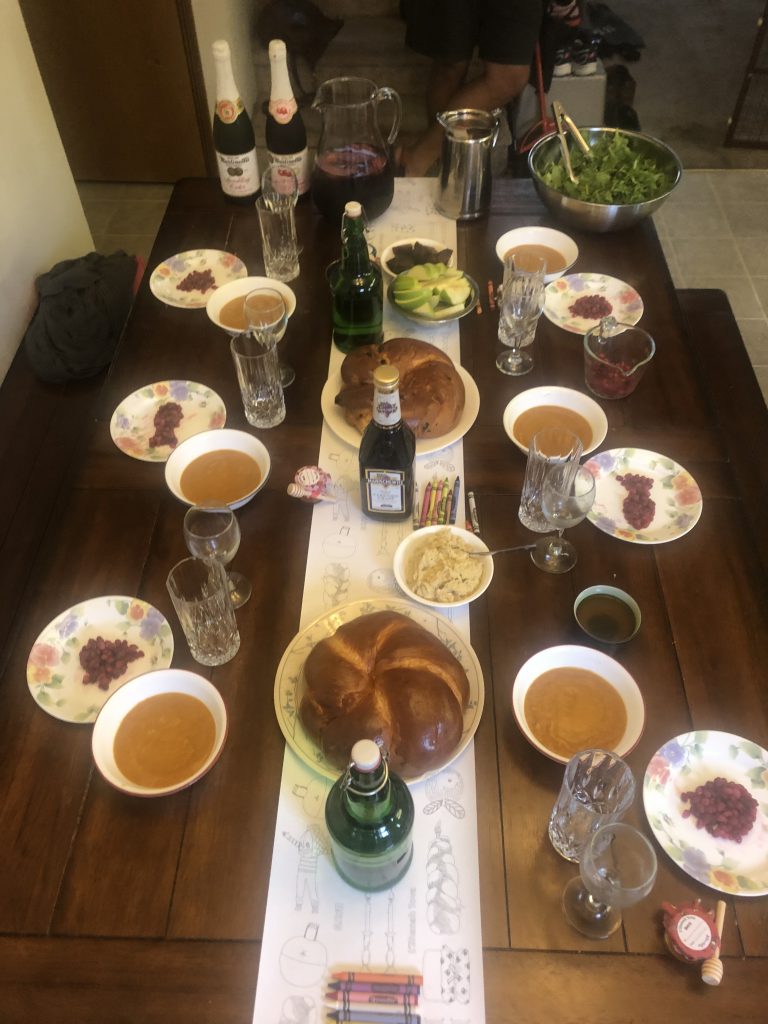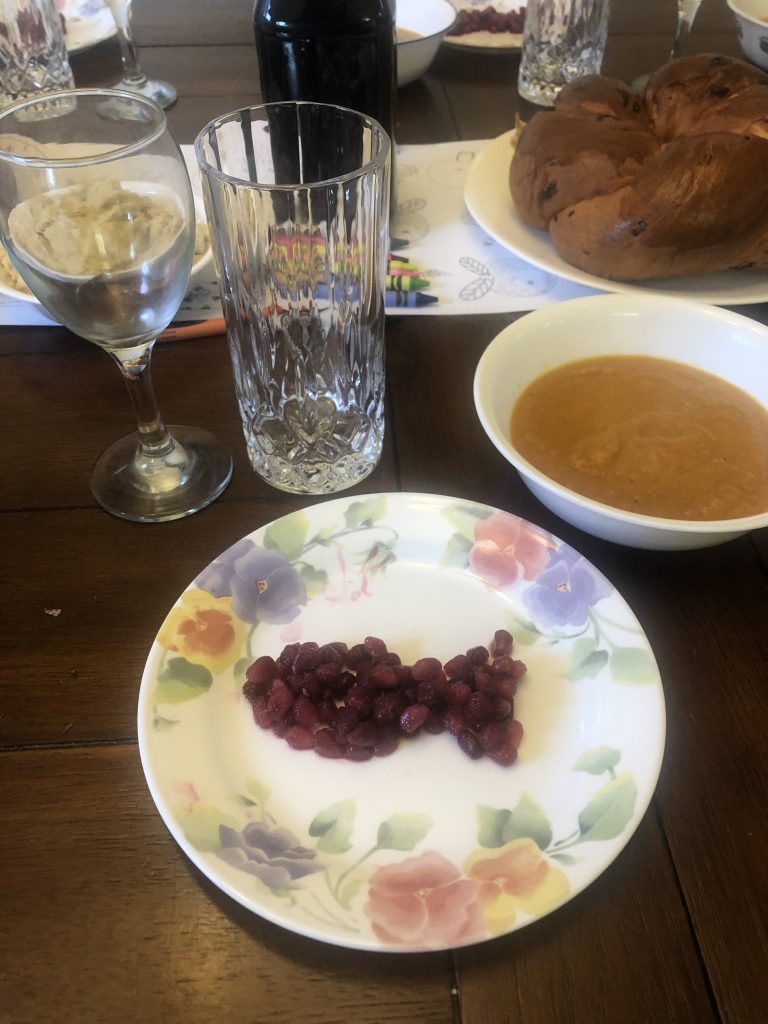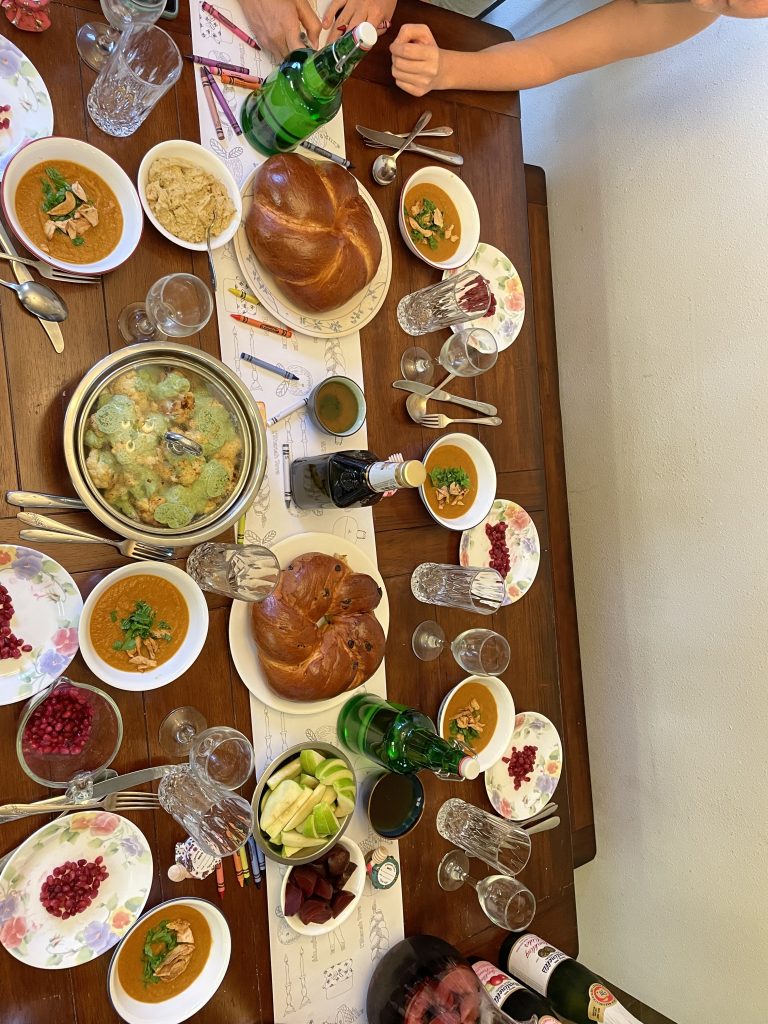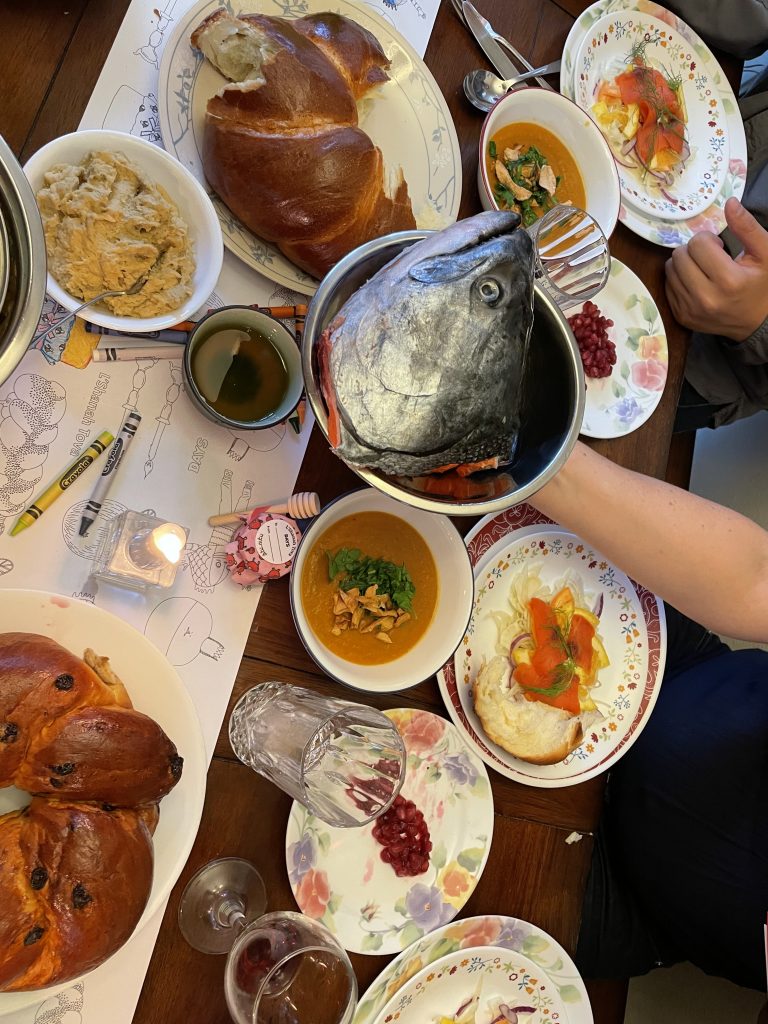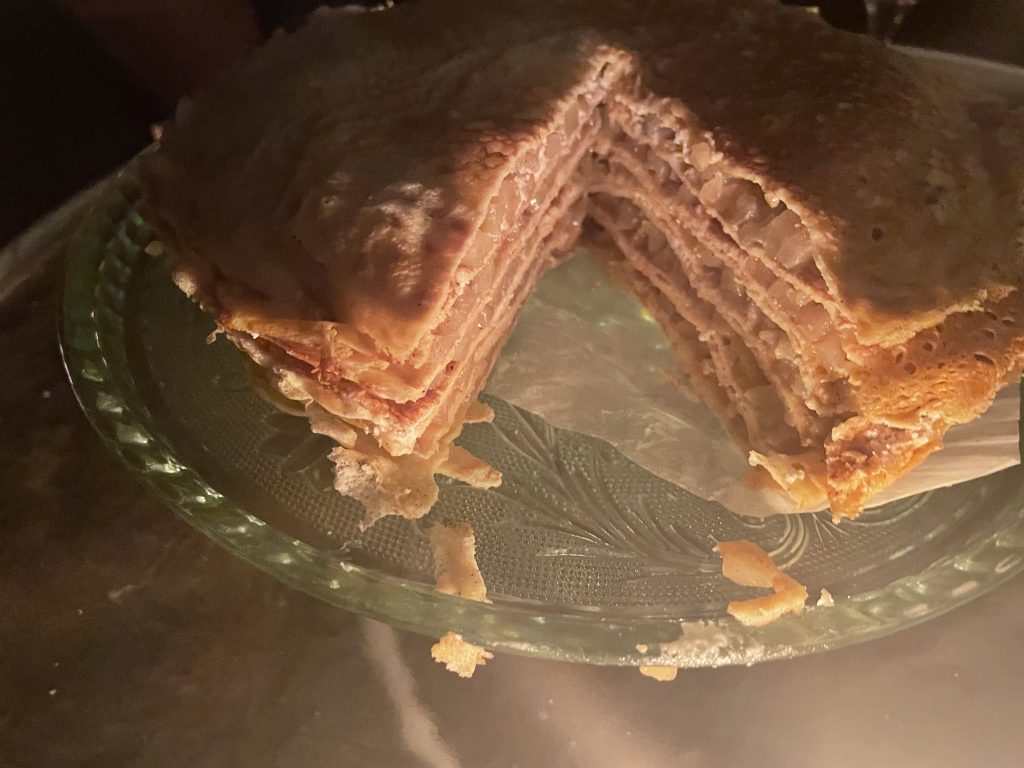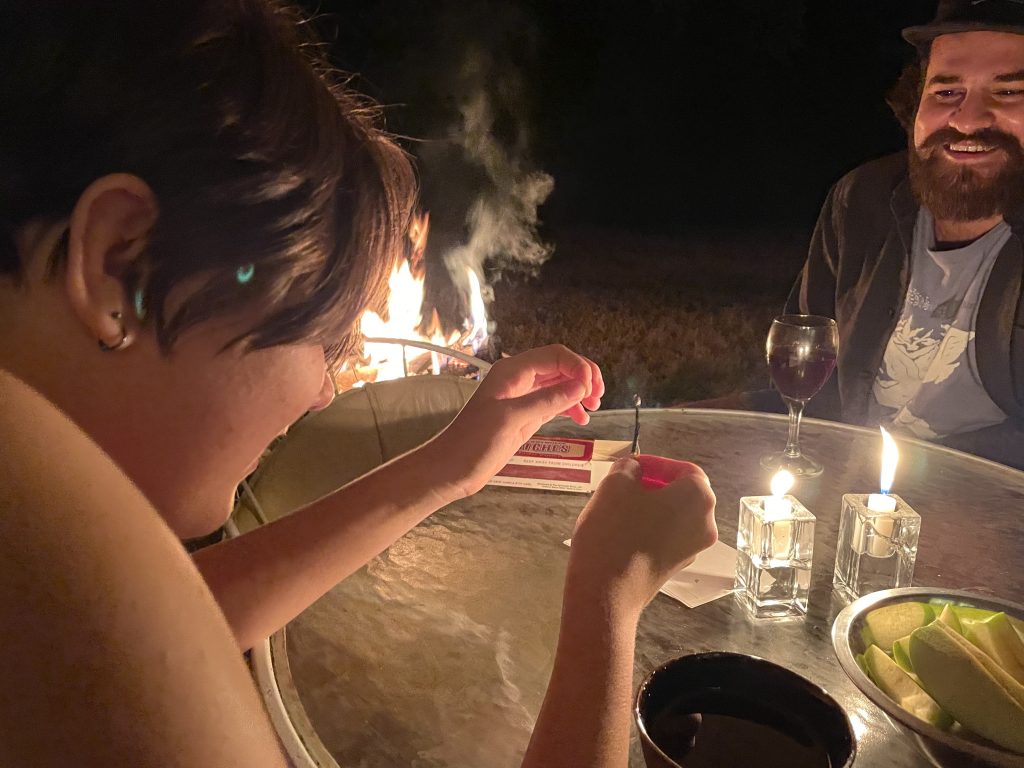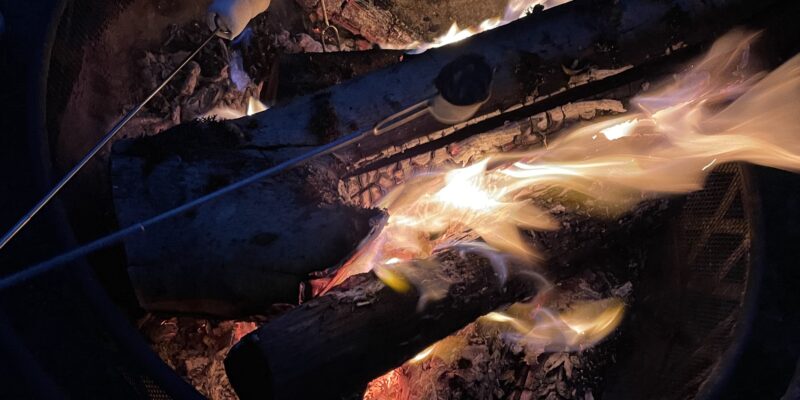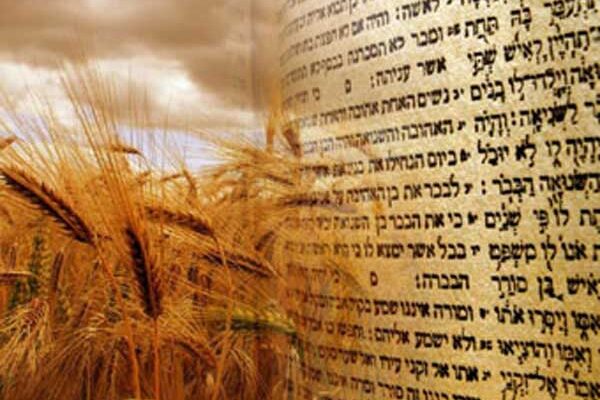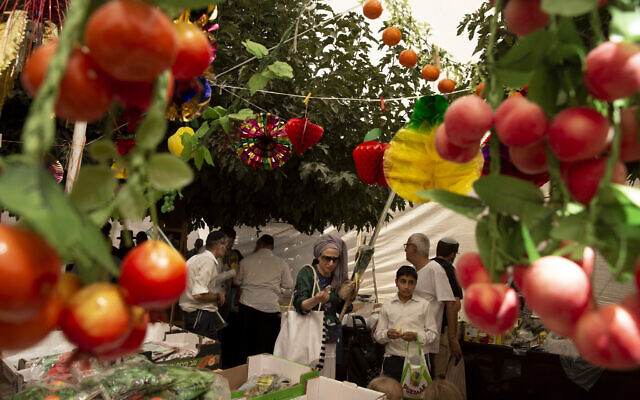This blog post is a little bit overdue since we celebrated the Hebrew calendar New Year last week. But, it comes instead on the eve of Yom Kippur, which marks a day of fasting to purify oneself for the coming year. One of the most interesting things about this year, Hebrew Year 5782, is a Sabbatical year called Shmita, which takes place every seven years. According to the Hebrew Bible, following every seven cycles of seven, the fiftieth year is the Year of Jubilee. The most recent Jubilee year was the year 5775 (2014 C.E.).
In a Shmita year, such as this one, it is customary to observe the instructions found in Exodus:
For six years you are to sow your land and to gather in its produce, but in the seventh, you are to let it go [tishm’tenah] and to let it be [u’nitashta], that the needy of your people may eat, and what remains, the wildlife of the field shall eat. Do thus with your vineyard, with your olive grove.
Exodus 23:10-11 (Sefaria)
Historically, releasing people from debt obligations and letting the land rest was reserved for the specific region of Israel. However, today, many recognize a general call to be stewards of the land and one another. Thus, the Shmita year encourages people to forgive debts, let agricultural lands rest, open private land to the commons, and freely redistribute access to food storage and perennial harvests so that anyone may acquire access. Modern considerations also emphasize broader care for the planet and concern for human rights and justice advocacy.
Our celebration of Rosh Hashanah began on the eve of the New Year. We celebrated with family by having a huge feast, including particular symbolic foods, and reading through special prayers and blessings. My Days United subscription box arrived about two weeks before the event, and it came with menu recommendations. With the help of my partner, we managed a beautiful dinner that included all symbolic foods and lots of wine (which seems to be the main indicator of a Jewish Holiday).
Days United Rosh Hashanah Box Honey for the New Year Brisket Pomegranate Sauce Brisket Round Challah Pomegranate Margaritas
The meal was wonderfully tasty and included lots of fruit, honey, and a sweet bread called Challah. Normally, Challah bread is an oval-shaped braided bread, but for Rosh Hashanah, it is baked round to represent the year’s full cycle—beginning to end. I learned that it is fairly complicated to make your own Challah, so I ordered mine ahead of time from a local bakery. The bread was amazing, especially when dipped in locally sourced wildflower honey.
Round Challah Rosh Hashanah Challah
We included honey and Pomegranate Seeds in nearly every dish. This meal was sweet, and every bite felt luxurious. We truly enjoyed the blessing of sweetness in this meal. Remembering the New Year in this way is very inspiring. It is also timely for us. Since our kids are still in school, and I am a college instructor, our scheduled years start in September. I appreciated the opportunity to reflect on the past and look toward our future in this way.
Rosh Hashanah Soup & Salad Rosh Hashanah Meal Pomegranate Seeds
Rosh Hashanah begins at sunset, and someone blows the Shofar horn to initiate the celebration. Unfortunately, I do not have a shofar horn, so I called upon my father to sound the Shofar for Rosh Hashanah via video. This is he and my nephew!
We prayed for injustices to be torn down this year and for blessings to come in the form of generosity and praise to God, and we drank wine to seal those blessings in communion with one another. We ate pomegranate seeds to represent the promise of eternal life. We dipped apples in honey to remember the promise of sweet blessings this year. We dipped deliciously sweet challah bread in honey and recognized the round bread as symbolic of the cyclical nature of life. Some symbolic foods we did not eat, like the fish head, represent our desire to be the head (and not the tail) this year.
Rosh Hashanah Dinner Rosh Hashanah Fish Head
Our night concluded with a bonfire and dessert, a homemade apple honey crepe cake. We spent some moments reflecting on this past year—what we wished had been different, disappointments and joys, and wrote down some of our hopes and expectations for the coming year, a new beginning. Then we tossed them in the fire and celebrated with sweet cake until we were ready to turn in for the night.
Rosh Hashanah Apple Cake Rosh Hashanah Reflection
We had such a great time celebrating with family and remembering the foundations of our faith as we look forward to the coming year. This is the fourth Jewish Holiday we have celebrated as a family this year (four more to come!). I have been impressed by the continual emphasis on prayer and action against injustice and care for God’s creation. This is a theme that I have studied for a long time as it occurs in the Hebrew Bible. It is really cool to experience how modern Jewish traditions remember and advocate themes of justice for the land and the people of God on Earth.
While you can pretty much find enough information online to host your own celebration of a Jewish Holiday, I highly recommend Days United as a starting point. They provide just enough to give you a basic introduction to build out from. If you want a discount on your first order, click on this Days United Referral link.
Read more about the Jewish holidays I am celebrating by searching for “Jewish holidays” or looking up specific holidays like Shavu’ot, Passover or Lag Ba’Omer. The Jewish holidays can also be found under the category “Readings & Interpretations. “

Dr. Erica Mongé-Greer, holding a PhD in Divinity from the University of Aberdeen, is a distinguished researcher and educator specializing in Biblical Ethics, Mythopoeia, and Resistance Theory. Her work focuses on justice in ancient religious texts, notably reinterpreting Psalm 82’s ethics in the Hebrew Bible, with her findings currently under peer review.
In addition to her academic research, Dr. Mongé-Greer is an experienced University instructor, having taught various biblical studies courses. Her teaching philosophy integrates theoretical discussions with practical insights, promoting an inclusive and dynamic learning environment.
Her ongoing projects include a book on religious themes in the series Battlestar Galactica and further research in biblical ethics, showcasing her dedication to interdisciplinary studies that blend religion with contemporary issues.
